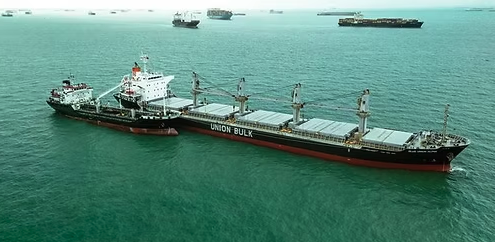
March 19, 2025
Dan-Bunkering, a leading global bunker supplier, announced on March 18th that it has successfully completed a biofuel fill for its customer, Danish dry bulk…

March 13, 2025
A coalition of eight organizations recently sent a letter to the House Committee on Fundraising urging Congress to extend the Section 40A Biodiesel Blender…

March 13, 2025
On Wednesday, March 12, the Brazilian Union of Fuel and Lubricant Distribution Companies (Sindicom) submitted a request to the National Agency for Oil, Gas…

March 10, 2025
The Bolivian government has taken a key step in the industrialization of energy with the final stages of construction of the biodiesel plant II…

March 6, 2025
According to a March 4 announcement by the German Union for the Promotion of Oilseeds and Protein Plants (UFOP), Germany’s biodiesel-to-diesel blending ratio fell…

March 6, 2025
The Costa Rican government will relaunch an old energy project to replace fossil fuels with biofuels, according to El País. The initiative is in…

March 4, 2025
Biodiesel and chemical producer FutureFuel Corp. issued an update on Feb. 28 on the timing of the planned restart of its biodiesel plant in…

March 4, 2025
On March 4, the U.S. government announced new tariffs on a wide range of goods from Canada, Mexico and China, including a 10 percent…

March 1, 2025
On February 24, senior officials from Bangchak and NYK Line gathered to witness the delivery of the first shipment of B24 marine biofuel from…

February 28, 2025
In 2024, German biodiesel exports grew for the third consecutive year, exceeding imports by about 1.61 million metric tons. According to information published by…

